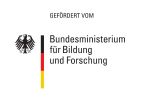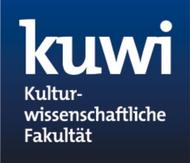Research
Research profile
Applying sociological theories of institutional change, economic action and symbolic justification and employing quantitative and qualitative analytical methods, we investigate a variety of economic phenomena, including financial and labor markets and their evolving regulation. Our research also delves into the dynamics of national and international economic and welfare state interpretations, the criticism and justice discourses in shaping (financial) capitalism, cultural and structural factors influencing market economy distributional outcomes, and the interplay of ideas and interests in shaping economic and social policy within states and international organizations.
Current research topics at for our team in economic Sociology include the impact of social and ecological critiques of capitalism on the emergence of new markets, the socio-political aspects of debt and over-indebtedness in Germany, and the development of the financial-critical organizational landscape in Germany, France, the United Kingdom, and Spain during recent financial crises. Furthermore, we explore the historical and comparative transformation of the social legitimacy of international free trade at both national and transnational levels
In this two-semester research project, students collaborated with the research team from the Chair of Sociology of Economics to explore economic, social, and cultural transformation dynamics in the rural area of Brandenburg.
Funding/Support/Scope
- Own resources of the Chair
- Supporters' Association of Viadrina
- Faculty of Cultural Studies
Duration
Summer 2021 – February 2024
Cooperation Partner
Municipal Council and Mayor of the Falkenhagen (Mark) municipality
Description
At the beginning of 2021, the team of the Chair of Sociology of Economics, led by Prof. Dr. Sascha Münnich, was invited by the municipal council and mayor of Falkenhagen (Mark) to conduct an assessment, a survey of opinions, and a social portrait of the municipality. The council aimed to evaluate and potentially improve their communication strategies. For the Viadrina team, this request evolved into a comprehensive eighteen-month study featuring standardized and non-standardized in-depth surveys of Falkenhagen's residents. The study aimed to investigate three further sociological research interests:
A. Images of the Village and Place of Residence: How do the residents of Falkenhagen (Mark) describe their village and its inhabitants? What do they see as the greatest advantages, as well as the problems and challenges in their life in Falkenhagen? How do references to the divide between urban and rural areas play a?
B. Social Structure: How are personal relationships structured in and around the village, how do residents manage their professional lives and leisure? What group divisions, conflicts, opportunities, and limits to community-building do they perceive?
C. Political Attitudes: How do residents assess the current political situation in Germany and Brandenburg? How do different groups of residents perceive current issues in national and state politics? What are the residents' attitudes towards current topics like mobility, the future, infrastructure, politics, and the environment?
The three research interests were outlined in a standardized questionnaire for all residents and further explored in qualitative interviews with some residents. Topic A was discussed with everyone, while Topics B and C were addressed only with part of the interviewees. Initially, there was a fourth topic focusing on specific social policy challenges in the community, but the results were not valid enough to report. The study findings indicate that although the urban-rural dichotomy holds significant symbolic value in the residents' daily lives and political attitudes, the rural area should be viewed as a multidimensional space. This space is where the challenges of economic, social, political, and ecological transformation intersect, affecting both urban and rural areas. Furthermore, it is a social space where the personal relationships and autobiographical experiences of small groups define the possibilities and limits of social adaptation and the revival and intensification of a village community.
Teaching
Summer Semester 2022: RESEARCH PROJECT (Semester 1 of 2): "Foundations of Standardized Survey Methods – Social Living Conditions in Brandenburg".
Winter Semester 2022/23: RESEARCH PROJECT (Semester 2 of 2): "Qualitative Interviews – Social Living Conditions in Brandenburg".
Publications
Final Report – Life and Future Orientation in Brandenburg. Available at: https://mycloud.europa-uni.de/s/PTbobRJezyYmFSa
Project Leadership and Team Members
Project Leadership: Prof. Dr. Sascha Münnich; Jonas Rietschel, M.A.
Team Members: Viktoria Hrynek, Maren Romstedt, Daniela-Johanna Grigoleit, Jutta Angelmaier, Karolin Sander, Katja Konrad, and Sophia Recht, along with many M.A. and B.A. students from various programs at the Faculty of Cultural Studies, European University Viadrina.
The social legitimacy of financial profits in Germany, Spain, France and Great Britain.
Funded by the BMBF as part of the call for proposals „Financial System and Society“
Term: 1.10.2015 – 31.1.2019
Scope: EUR 340,000
The research project „The Social Legitimacy of Financial Profits“ addressed the fundamental sociological question of how the institutional and organizational structures of financial markets in various European countries, which have developed into the dominant sector of the global economy in the course of the rise of financial capitalism since the 1990s, generate political and cultural legitimacy. The question was when they are criticized and justified by civil society, whether and if so how such debates differ between different European countries, and to what extent moral ideas about legitimate and illegitimate profit generation in the financial sector (can) influence the evolution of financial capitalism. Starting from the question raised by the financial crisis of 2008 as to what extent a lasting weakening of the legitimacy of the actions of financial investors can be observed, we aimed at a fundamental conceptual and empirical sociological examination of the deep structure of the cultural embedding of financial and economic orders.

